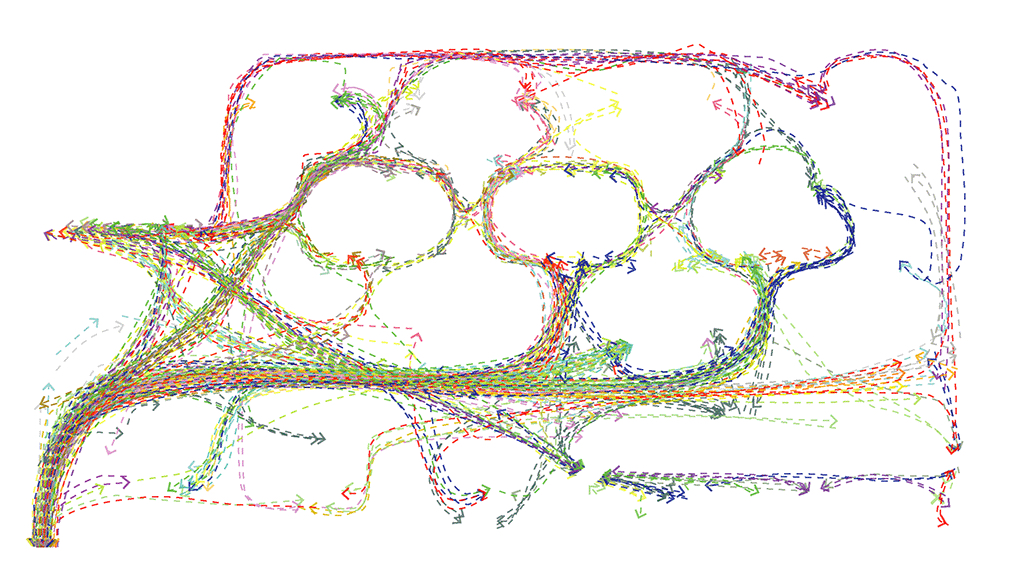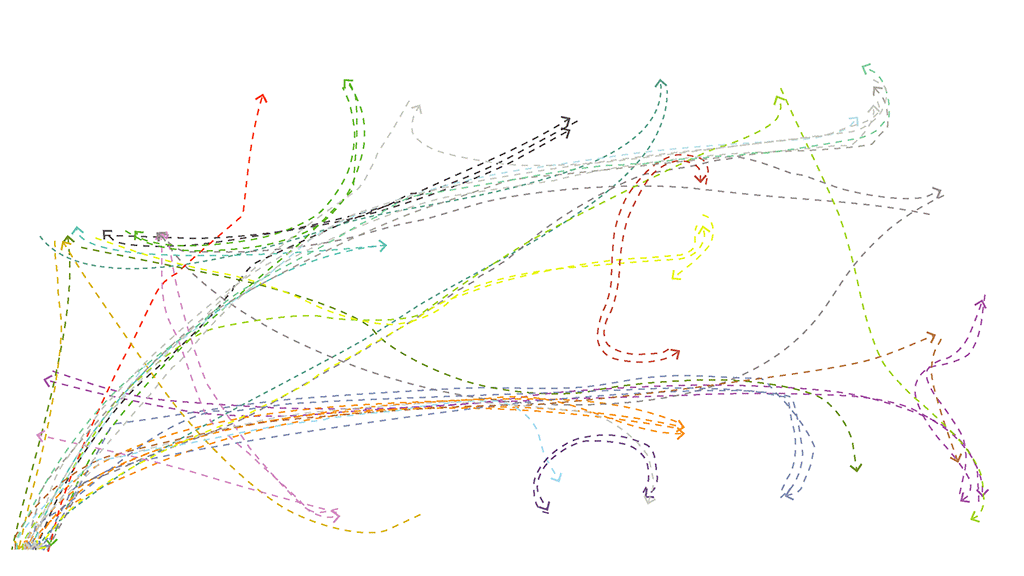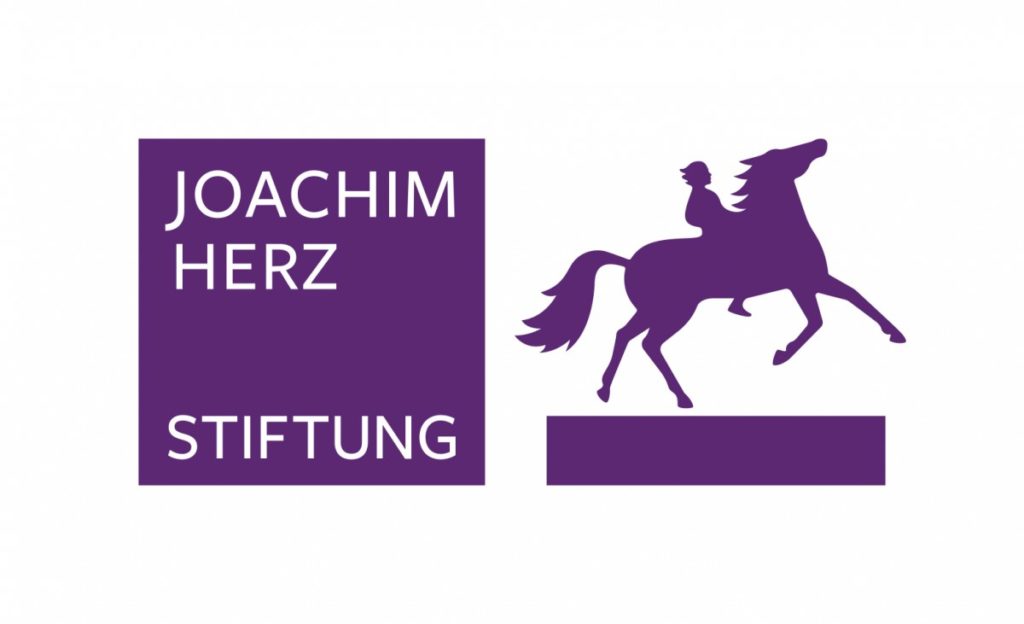
An Interdisciplinary and Co-laborative Experiment at Humboldt Labor
The exhibition spaces of the Humboldt Labor in Berlin’s Humboldt Forum are designed as an instrument of knowledge transfer between science and society. In the research project Museum Space Knowledge, this transfer is investigated from a spatial perspective following an intersectional approach. The aim is to produce insights on the space and the architecture of the co-production of knowledge within the museum context and to spark new impulses for the design of exhibition spaces. For this purpose, a ‚co-laborative‘ field research at the intersection of architecture and social sciences is conducted in the inaugural exhibition „After Nature“.
The varying spatial exhibition settings made possible by the flexible architecture of the Humboldt Labor constitute the basis for an experimental research design aimed at empirically investigating and comparing different arrangements. 
Methodologically, a mixed-methods approach is pursued, combining three types of data and analysis: quantitative (indoor tracking), qualitative (ethnography), and simulative (e.g. of the visibility according to Space Syntax). Based on the empiric data, design impulses are developed that can be used as a basis for future exhibition designs. The experimental and collaborative research approach also allows us to pursue a fundamental methodological question: What is design-based research or research-based design?
Funded by:
Project heads:
Dr. Séverine Marguin (TU Berlin), Dipl.-Ing. Henrike Rabe (BIM)
Staff:
Sarah Etz
Duration: August 2021 to July 2022
